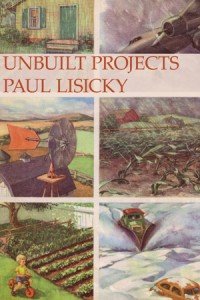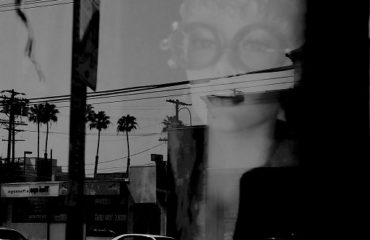Late to the Search Party is the debut collection of Steven Espada Dawson, exploring the individ...

JUNE INTERVIEW WITH STEVEN ESPADA DAWSON

MAY INTERVIEW WITH SOPHIA TERAZAWA
When readers first meet the narrator of Sophia Terazawa’s novel, Tetra Nova, published by Deep ...

FEBRUARY MONTHLY: INTERVIEW with CLAIRE HOPPLE
From the first sentence of Claire Hopple’s latest novel, Take It Personally, you know you’re in...

JANUARY MONTHLY: INTERVIEW WITH MARIA ZOCCOLA
Any reader with even a cursory understanding of Greek mythology will recognize her name: Helen ...

DECEMBER MONTHLY: INTERVIEW WITH JIMIN SEO
Jimin Seo is the author of OSSIA, his debut collection of poetry. Winner of the The Changes Pre...
Take Four: An Interview with Paul Lisicky
In the first installment of our new interview series, “Take Four,” we talk to contributor Paul Lisicky about his short story “Lent” and his latest collection from Four Way Books. In between issues, we’ll keep the conversation going as more contributors share their thoughts on recent work, current projects and the challenges of writing well.

FWR: As one might expect in a story called “Lent,” there are a number of references to abstention, and to the intentions that motivate its practice. In this way the story reveals an interesting tension between spirituality and modern life. Do you think that anyone still knows how to abstain, or is abstinence no longer considered a virtue?
PL: That’s a great question. Father Jed, the central character in that story, certainly tosses around some ideas about abstention, but I think his thoughts probably have less to do with virtue than they do with some kind of personal crisis. He’s so concerned with correct appearances (i.e., Father Ben’s mismatched shoes) that he completely misses the fact that the guy is levitating. I actually think the story is pretty much on the side of permissiveness when it comes to spiritual matters, even though Father Jed is the lens of it. I sort of expect the reader to identify with the people in the assembly, who might be doing just fine with their liturgical dancers and folk hymns.
It would be interesting to write a story that seriously considered the abstention question. Most of my books have been about desire, the paradox at the center of it – how it sustains us as it ruins us – but not so much about pure refusal. It seems to me that many people around us are in the practice of abstaining from one thing or another all the time – think about AA or NA or SAA and how entrenched those programs are in urban life – but maybe that’s another matter. Abstention is different if you don’t already have a problem with excess. But how can anyone not be in some difficult relationship with excess in a culture that encourages so much wanting?
FWR: It’s interesting that you say most of your books are about desire. It’s obviously an important aspect of fiction. Kurt Vonnegut famously said, “Every character should want something, even if it is only a glass of water.” But in good fiction it’s usually more complicated than that. Perhaps what’s missing from a story in which someone simply wants a glass of water is this tension you’ve mentioned, between desire’s power to sustain and its power to ruin. Would you agree? And would you say that much of your own work begins, conceptually, with this tension in mind? Or does it more often evolve naturally from character?
PL: I’d definitely agree – desire is always a two-headed beast, and I’m not even interested in pursuing a story until I can find my way into its opposing energies. Usually a story doesn’t start with character for me, but from situation or image. Right now, I’m writing a little story about a toll taker on a highway, a woman who leaves her corporate job behind to pursue a childhood dream. The tone of it is tongue-in-cheek and not. I just know I wouldn’t be able to write the story unless I were focusing on the image of the tight space my character has to occupy as the cars are aiming at the toll booth at high speed. So a story for me starts with the metaphor, and the metaphor has to be in sync with sound – by that I usually mean an opening sentence with a particular cadence. Once I have those two things in line, a character can emerge. I can’t imagine working from character alone – human beings can be so inscrutable, all over the place – but then again I’ve never exactly been a realist.
FWR: Religion seems to be another common theme in your work, though it often functions as a lens rather than the object itself. For example, “This is the Day,” a story from your new collection, Unbuilt Projects, presents Christian mythology as a kind of philosophical system, which the narrator uses to interpret an emotionally painful reality.
PL: It’s funny you should be asking this now, as I’ve been going through the last draft of a new memoir, and I was just telling myself to “get rid of this holy stuff!” By holy stuff, I’m not so much talking about thinking, but a borrowed pitch or tone that presumes the reader’s going to hear it and align with it. I can’t stand coming upon that, and my bullshit detector has been razor sharp about it these days.
I’m a big fan of people like Noelle Kocot, Joy Williams and Marie Howe, who are all pretty open about the subject of God – or they’re at least asking questions about God in their work. Marie is a good friend, and I was actually reading The Kingdom of Ordinary Time in manuscript as I was writing the first pieces of Unbuilt Projects. Marie’s book pretty boldly riffs on scriptural narratives, and I took direction from it. She’s not writing didatic work; she’s, as you say, using the mythology as a philosophical system.
I think there’s a lot of anger and bewilderment about God – or around the subject of God – in Unbuilt Projects. That wasn’t made up. The structures that I’d grown up with, the system that had sustained me, even though I wasn’t always aware of it as an adult – were shattered for a time by my mom’s confrontation with dementia. You can hear lots of anger in “How’s Florida?” and “In the Unlikely Event” and “Irreverence.” But I’m glad the book also has pieces like “The Didache,” so that the implied question – ”What kind of God would allow this to happen to someone who matters to me?” – has another side. I wouldn’t want that question to simply generate rage. Rage isn’t the whole story, it never is.
FWR: It sounds like the stories in the book were at least partly cathartic. Of course most literary fiction is written for the author’s benefit as well as for the reader’s, but in some cases this seems more so than in others. This more personal work must come with its own unique difficulties. Do you have any advice for writers who find themselves staring down similar projects?
PL: My favorite stories and novels always have a sense of necessity about them. They feel impelled. It’s hard to say exactly what “impelled” is, but we feel it when we’re reading it. Maybe we could say that the work has come into being out of the writer’s suffering. Maybe it digs into the why? of the situation – which is unanswerable, finally. It doesn’t feel like the writer has even chosen to write such material. It’s chosen him or her – maybe.
I think if you can choose whether or not to write a difficult personal experience, then maybe you shouldn’t write it. Or not write it directly, at least. Find another narrative (or set of metaphors) in which to plant that energy. Mere transcription is never enough anyway. It always has to be about craft, distinctiveness of expression. Exactness of pitch and pacing. The sentences.
Catharsis is a funny thing. I’ve been reading Joy Williams’ 99 Stories of God and I keep thinking about this passage:
“Franz Kafka once called his writing a form of prayer.
He also reprimanded the long-suffering Felice Bauer in a letter: ‘I did not say that writing ought to make everything clearer, but instead makes everything worse; what I said was that writing makes everything clearer and worse.’”
The slyness of that passage might not be available out of context, but I completely get what it’s suggesting. I didn’t feel lighter or wiser or stronger after finishing Unbuilt Projects or The Narrow Door, the new memoir. I might have in fact felt “worse” afterward – who knows? I kicked a lot of questions around, questions that felt necessary to give form to. That’s the most of what we can expect of the things we make, at least on the personal level. We’re lucky to have tools that can possess us completely (in our case, language) when the people and places we love might be falling down around us. Frankly, I don’t know how anyone thrives, much less endures, without having sentences or musical phrases or paint or whatnot at their disposal. That’s the biggest mystery to me. I want to know how those people do it.
|
|
|
More Interviews |
 “This is meant to be the story of all lives, though I’m talking about one in particular,” Lisicky writes, and if the goal of Unbuilt Projects is “to be the story of all lives,” Lisicky has succeeded. Adept at harnessing the highs of life that are ruthlessly countered by lows— “see how the plants grow. And die a little”—these pieces are anchored by truths and by Truth. With an aptitude for creating vivid scenes, Lisicky envelops us in his stories, so though we did not stand under “The sky so scrubbed with stars it hurts,” it is as if we did.
“This is meant to be the story of all lives, though I’m talking about one in particular,” Lisicky writes, and if the goal of Unbuilt Projects is “to be the story of all lives,” Lisicky has succeeded. Adept at harnessing the highs of life that are ruthlessly countered by lows— “see how the plants grow. And die a little”—these pieces are anchored by truths and by Truth. With an aptitude for creating vivid scenes, Lisicky envelops us in his stories, so though we did not stand under “The sky so scrubbed with stars it hurts,” it is as if we did.
